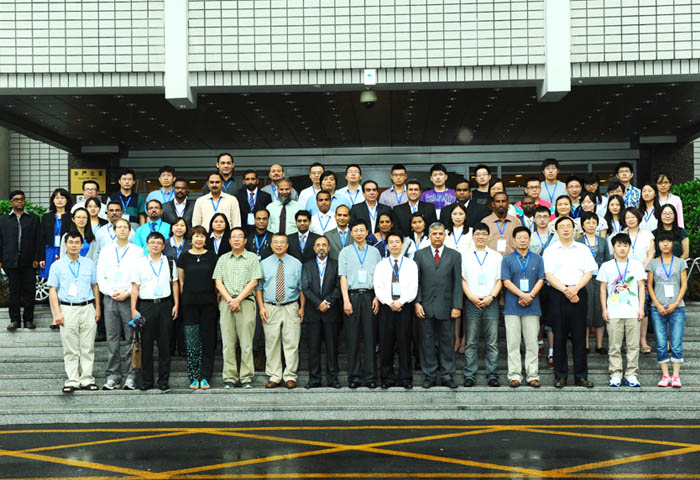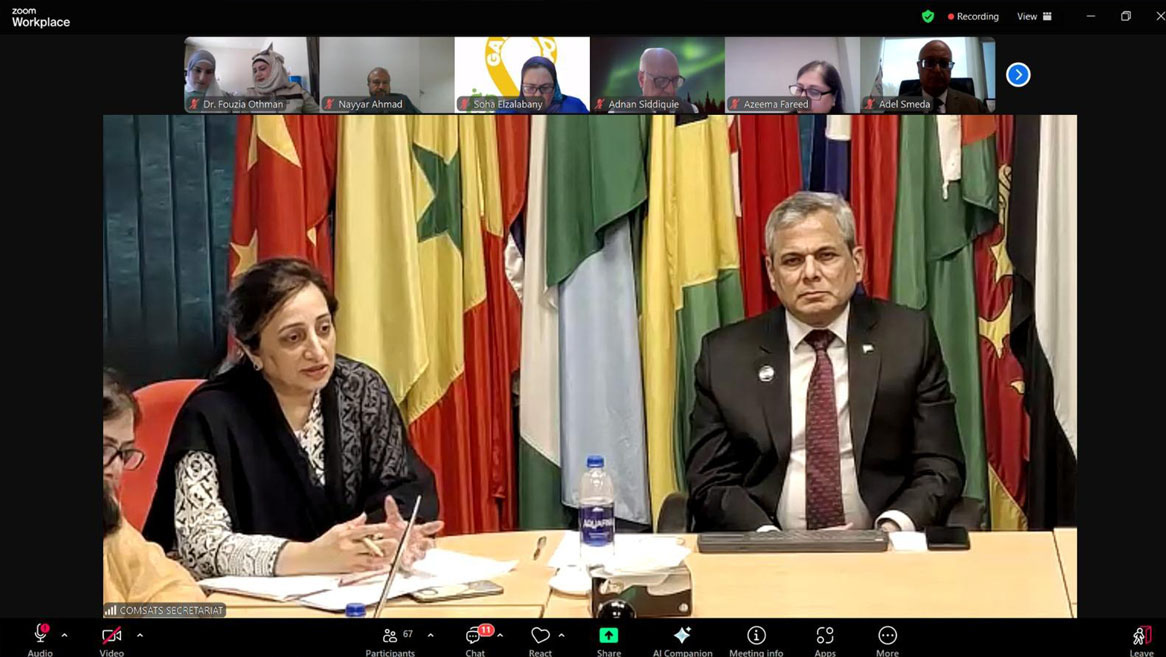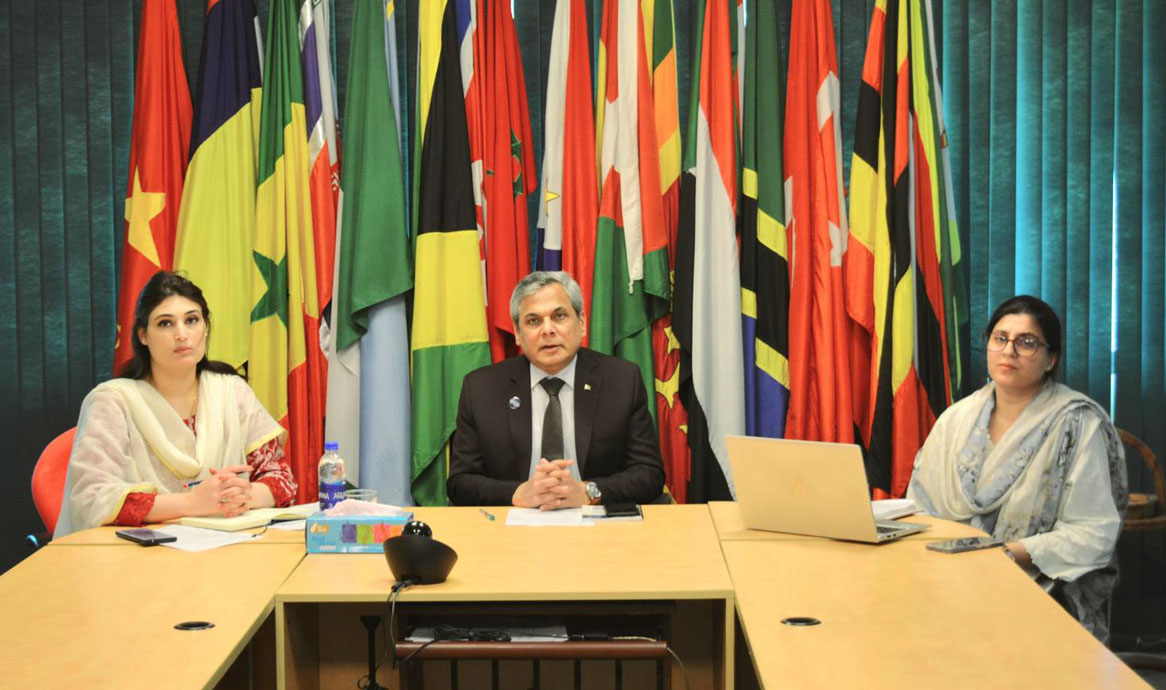The ten-day International Training Workshop on ‘Extreme Weather and Climate  Events: Detection, Monitoring, Prediction and Risk Management for Developing Countries’ was successfully held on 14th to 23rd July 2013, in Beijing, China. The workshop was organized by COMSATS’ Centre of Excellence in China, the International Center for Climate and Environment Sciences (ICCES), with co-sponsorship from Chinese Academy of Sciences (CAS), The World Academy of Sciences (TWAS), the Commission on Science and Technology for Sustainable Development in the South (COMSATS) and the International S&T Cooperation Program of China.
Events: Detection, Monitoring, Prediction and Risk Management for Developing Countries’ was successfully held on 14th to 23rd July 2013, in Beijing, China. The workshop was organized by COMSATS’ Centre of Excellence in China, the International Center for Climate and Environment Sciences (ICCES), with co-sponsorship from Chinese Academy of Sciences (CAS), The World Academy of Sciences (TWAS), the Commission on Science and Technology for Sustainable Development in the South (COMSATS) and the International S&T Cooperation Program of China.
Speaking at the inaugural ceremony of the workshop held on 15th July 2013, Mr. Jinghua Cao, Deputy Director General, Bureau of International Cooperation, CAS, China, expressed hope that the event would provide a platform for developing long-term strategies for prediction, detection and monitoring of extreme weather and climate events. The Executive Director COMSATS, Dr. Imtinan Elahi Qureshi, in his message read out on the occasion by Mr. Tajammul Hussain, Advisor (Programmes) COMSATS, stated that the increasing frequency and severity of extreme weather conditions and natural disasters are among the most difficult challenges facing mankind at present. He added that in order to understand the relationship of these phenomena with global climate change, one has to rely on meteorological data over a long period of time for statistical and computational analysis using appropriate models for predicting future climate events. He considered the topics covered by the training workshop very relevant for achieving the goals of sustainable development at a global level.
Prof. Jiang Zhu, Deputy Director, IAP, China, thanked CAS for increasing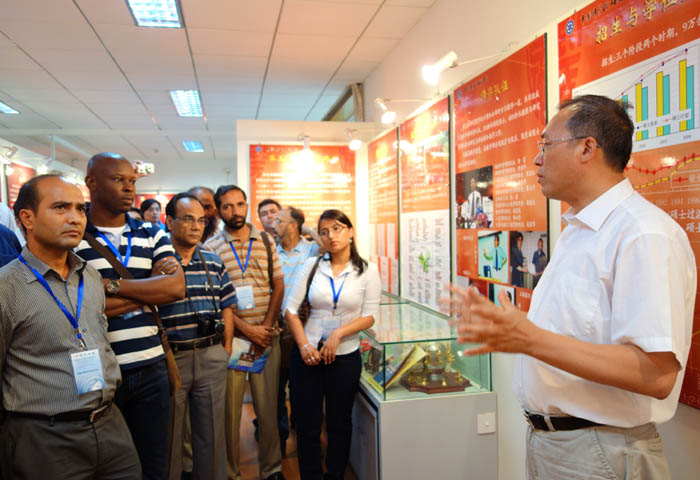 the institute’s budget ten-fold, which would enable it to further enhance its activities and international cooperation. Mr. Zamir Ahmed Awan, Science Counselor, Embassy of Pakistan in China, appreciated the Chinese government’s support for providing opportunities of capacity-building and research collaboration to young scientists of other developing countries. Prof. Lin Zhaohui, Director ICCES, informed that China has, so far, endured a net loss of CNY 400 billion due to different extreme weather and climate events. He stressed the need for developing techniques for detection and monitoring of extreme weather events as well as strategies for risk management.
the institute’s budget ten-fold, which would enable it to further enhance its activities and international cooperation. Mr. Zamir Ahmed Awan, Science Counselor, Embassy of Pakistan in China, appreciated the Chinese government’s support for providing opportunities of capacity-building and research collaboration to young scientists of other developing countries. Prof. Lin Zhaohui, Director ICCES, informed that China has, so far, endured a net loss of CNY 400 billion due to different extreme weather and climate events. He stressed the need for developing techniques for detection and monitoring of extreme weather events as well as strategies for risk management.
The international training workshop comprised the following three technical sessions: (i) Observation of Extreme Events and its Detection; (ii) Monitoring and Prediction of Extreme Events; and (iii) Risk Management of Extreme Events. The workshop featured invited lectures by six subject experts belonging to Australia, China and USA, as well as 11 oral presentations by local and foreign participants. Moreover, the event included scientific visits to the University of Chinese Academy of Sciences (UCAS); Chinese Meteorological Agency (CMA); and ICCES/IAP Supercomputing Facility.
Attended by a total of 62 participants, including 29 foreign participants, 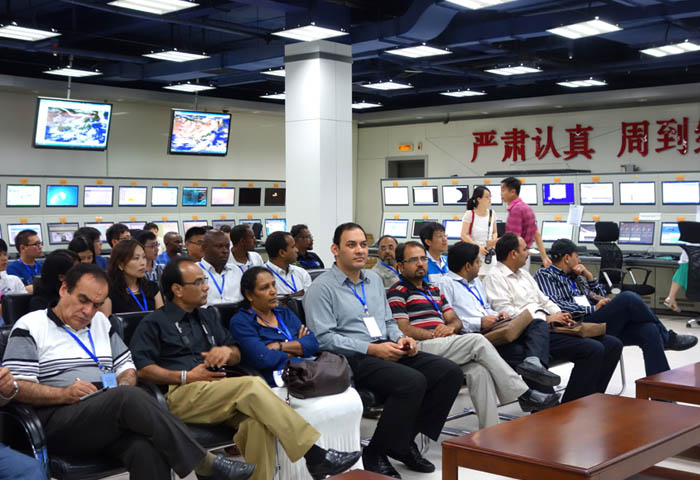 the workshop facilitated scientific and technological cooperation among the participating research organizations belonging to various developing countries, and enhanced their capacities to timely predict, detect and monitor extreme weather and climate events and to work-out necessary measures for their mitigation at national, regional and international levels. The countries represented during the workshop include: Bangladesh, Egypt, Ethiopia, China, Iran, India, Malaysia, Mongolia, Nepal, Nigeria, Pakistan, Sri Lanka, Thailand and Uganda.
the workshop facilitated scientific and technological cooperation among the participating research organizations belonging to various developing countries, and enhanced their capacities to timely predict, detect and monitor extreme weather and climate events and to work-out necessary measures for their mitigation at national, regional and international levels. The countries represented during the workshop include: Bangladesh, Egypt, Ethiopia, China, Iran, India, Malaysia, Mongolia, Nepal, Nigeria, Pakistan, Sri Lanka, Thailand and Uganda.
A side-line meeting of COMSATS’ International Thematic Research Group on ‘Climate Change and Environmental Protection’ was also held on 21st July 2013. During the meeting, the Group and other partners of the project “Characteristics and Mechanism of the Extreme Climate Events under the Climate Change Background” deliberated under the chairpersonship of the Director ICCES.


